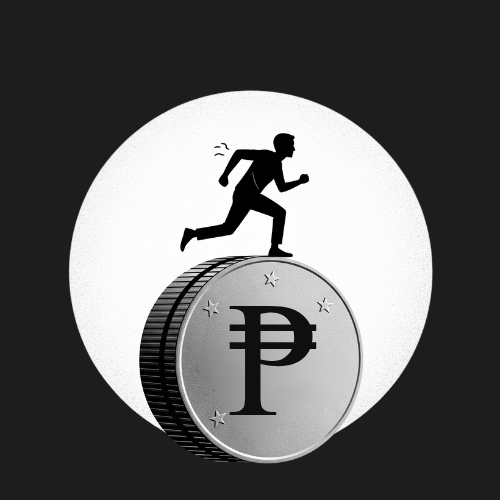- Builder's Path
- Posts
- Why Earning ₱50K Still Isn’t Enough (And What To Do About It)
Why Earning ₱50K Still Isn’t Enough (And What To Do About It)
The truth about lifestyle creep, invisible leaks, and how to finally take control of your finances.

You're earning ₱50K, but still feel broke? Here's why.
“I thought earning ₱50K/month would finally give me freedom.”
But when the paycheck arrived, it felt like… nothing changed.
Still stressed. Still broke. Still afraid of unexpected expenses.
I’ve been there.
When I was starting out, I thought my problem was income.
“If I just earn more, I’ll finally be able to save.”
But when I got my first raise, something weird happened:
I didn’t feel any richer.
In fact, I was spending even more.
Upgraded food. New gadgets. A “reward” for all my hard work.
But no savings. No investments. Nothing for my future self.
That’s when I learned the painful truth:
The problem wasn’t my income. It was my system.
The Silent Trap: Lifestyle Creep
"It's not how much money you make, but how much money you keep, how hard it works for you, and how many generations you keep it for."
When your income increases, your expenses tend to rise with it.
You eat out more. Buy things to “treat yourself.”
Get comfortable with delivery apps (hello, Grab and Foodpanda 👀).
And soon, that extra money?
Gone.
📉 Stat: A recent report showed that millennials and Gen Z in the Philippines spend an average of ₱2,500–₱4,000/month on food deliveries alone.
That’s ₱30K–₱50K a year gone, without realizing it.
It’s okay to spend on things that bring you joy.
But if your future self gets nothing, it’s not freedom it’s financial stagnation.
Why Budgeting Alone Doesn’t Work
"A budget is people telling their money where to go instead of wondering where it went."
You’ve probably heard the advice: “Make a budget.”
But here’s the problem…
Budgets fail when there’s no system behind them.
Most people:
Track for a week then give up
Try to cut too much, too fast
Have no real goal or payoff for budgeting
Think it means depriving themselves forever
The truth?
You don’t need to live like a hermit to save money.
You just need a simple, automated system that does the heavy lifting for you.
How I Broke Free (And How You Can Too)
"A part of all I earn is mine to keep."
When I realized I was stuck financially, I made one small change:
I read The Richest Man in Babylon.
I started paying myself first
₱2,000/month, or 10% of my income at the time.
After a few months, my savings started growing.
And more importantly, so did my confidence.
I finally felt like I was making progress.
Not because I had a huge income…
But because I had control.
A Step-by-Step System for Financial Stability
Here’s the starting point if you’re stuck in the ₱30K–₱100K/month trap:
✅ Do a financial audit – List down your monthly income and expenses.
✅ Pay yourself first – Start with 5–10% of your income and automate it.
✅ Open a separate savings account – Remove temptation.
✅ Use a simple system like the 50/30/20 rule
(50% needs, 30% wants, 20% saving/investing)
Bonus: I created a plug-and-play budgeting template to help you.
This works even if you’re only saving ₱1,000/week.
Small shifts = long-term freedom.
Ready to Break Out of the Paycheck-to-Paycheck Cycle?
Want to take full control of your finances—without waiting years to figure it out alone?
I’m currently opening a limited beta round of my 1-on-1 financial coaching program for Filipino employees and remote workers.
It’s a structured, step-by-step system to help you track your money, save consistently, and build real financial confidence—even on a ₱30K–₱100K/month income.
I’ll walk you through the exact frameworks I used to turn my finances around.
For a short time, I’m offering it at a discounted rate to my first batch of clients in exchange for feedback.
📅 Book a free 30-min discovery call here → calendly.com/mr-ricyu/30min
Let’s map out your financial game plan together.
See you in the next issue.
—Ric